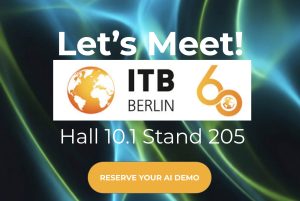“There is literally magic happening,” said LinkedIn Co-Founder and Venture Capitalist Reid Hoffman when speaking to technology executives across sectors of the economy about the proliferation of AI technology earlier this year.
Hoffman was certainly not alone in his observations; while AI has long been viewed as a promise of the future, the technology has recently reached an inflection point that sees it grasping mainstream attention, interest, and buy-in. The recent emergence of ChatGPT has seemed to kick the real-time development of AI tools into overdrive as technology giants like Google race to get their competitor products across the finish line – or risk being left behind.
A study by McKinsey Global Institute found that AI adoption by businesses could increase global GDP by up to $13 trillion by 2030, while a survey by PwC found that 72% of business leaders believe that AI will be a significant business advantage in the future. Finally, a report by Accenture found that AI has the potential to increase profitability rates by an average of 38% across 16 industries.
Despite a lot of fear around AI in the hospitality industry and what it means for jobs. The truth is technologies like AI are supporting more hoteliers in keeping their business profitable, and their employees focused on initiatives that can drive revenue and direct bookings. Most importantly, AI takes the guesswork out of pricing.
Why Are Hoteliers Still Playing a Game of The Price is Right?
Today, companies like Amazon change prices every few minutes to offer the most competitive prices. In fact, much of Amazon’s success can be attributed to the e-commerce giant’s dynamic pricing model, which ensures the platform offers the best prices to its customers while offering unparalleled convenience, fast delivery options, and a seemingly unlimited variety of products.
On the contrary, many hotels often rely on guesswork, which can best be described as an unintentional game of ‘The Price is Right.’ This might have worked in decades past; after all, traditional revenue management involved the mathematical examination of how guests were engaging with different prices across every channel. As such, hotels could rely almost entirely on historical demand. Today, however, it’s all about data.
Pricing is a mechanism that allows hotels to create robust, profitable demand and support the brand and how it is marketed and positioned. In the hyper-competitive hospitality market, the approach must be more strategic. Fortunately, this is where AI revenue management comes in.
The Future of Revenue Management Is Here
Already, AI has begun to revolutionize the pricing strategies employed by hotels. An AI-powered revenue management platform can work seamlessly in the background, deriving accurate insights and predictions into customer behavior, market trends, and demand patterns that should inform pricing decisions. AI revenue management can analyze various data sources to ensure the accuracy of their recommendations and forecasts, from historical data to real-time data, machine learning algorithms, demand modeling, different statistical models, and more.
AI can factor in hundreds of variables at any given time, ranging from sales patterns and customer footfall to external information such as weather, current events, and public holidays. This data aggregation scope is simply impossible for hotels relying on legacy pricing strategies.
It’s also important to note that AI-powered platforms, like LodgIQ’s revenue management system, can be leveraged in various ways with varying degrees of AI influence.
Manual mode, as an example, requires a human operator to manually control the platform without assistance from the revenue management system.
Co-pilot allows the RMS to assist the revenue manager by providing suggestions, warnings, and recommendations. The Revenue Manager is still responsible for controlling the system.
Conversely, Auto-pilot mode sees the RMS take over most tasks but still requires a Revenue Manager to be present and ready to take control if necessary.
Fully Autonomous mode allows the platform to operate without human intervention. The RMS is responsible for all tasks and decisions, and the Revenue Manager is not required to be present or ready to take control.
With this framework, hotels can toggle between modes to customize their revenue management approach in a way that best serves their team and drives the best results.
The question on everyone’s mind is: will this technology eliminate entire categories of jobs? Hoteliers need AI tools to empower them to be better at their jobs in accordance with modern demands and expectations – not replace their jobs. Instead, AI is expected to influence roles – like that of a Revenue Manager – to favor productivity, accuracy, and efficiency. In many ways, AI will eventually be viewed as a core business tool in the same way a calculator is.
So, if you’re going to play the hotelier’s version of ‘The‘Price is Right’– shouldn’t you play to win? LodgIQ RM solutions are trusted by leading hoteliers and backed by advanced patented technology, AI algorithms, a sophisticated tech stack, and an expert team. Request a demo today to explore how you can leverage LodgIQ RM to create a winning and profitable strategy for your hotel.
About LodgIQ
LodgIQ™ provides advanced travel industry revenue optimization technologies. Its breakthrough next-generation revenue optimization platforms, LodgIQ RM were developed by seasoned revenue management executives and Silicon Valley technologists. Currently working with over 550 hotels LodgIQ’s products combine sophisticated machine learning with an intuitive and powerful user interface delivering advanced recommendations and actionable analytics. LodgIQ is headquartered in Silicon Valley, with offices in New York City, Phoenix, and Bangalore.






